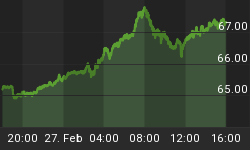Like any other weak-willed entity, an over-indebted country eventually finds that formerly-easy things get harder to do. Today, for instance, banks are having trouble attracting customers with the kinds of credit scores that meet previously-set criteria for mortgages and car loans. As a result they're writing fewer loans and the economy is seeing less debt-fueled growth than policy makers think is ideal for the run-up to the next election.
So the government has begun a mass-education program to teach citizens how to manage credit wisely and limit borrowing to highly productive projects. Just kidding! What the government is actually doing is changing the way credit scores are calculated to raise them to fit bank lending standards.
This of course should not be a surprise, since it has recently become the policy of most US institutions do define standards downward in a pinch. College grade inflation is an obvious example, as is the fact that government inflation, unemployment and GDP statistics are systematically distorted to make bad numbers look better.
In this latest case, credit scores will no longer include the impact of past-due debts that have been settled and will give less weight to debts relating to medical expenses. Take those things out and voila, the average American has a lot better-looking credit, more of them will qualify for mortgages, more homes will be bought, and the economy will be stronger in November 2016.
For a longer, very well-done look at this subject, see Zero Hedge's As "Housing Recovery" Fizzles A New Scheme Emerges: Boost FICO Scores By Changing The Definition















